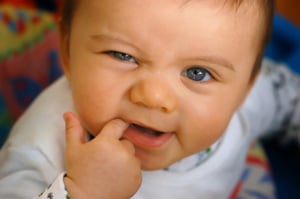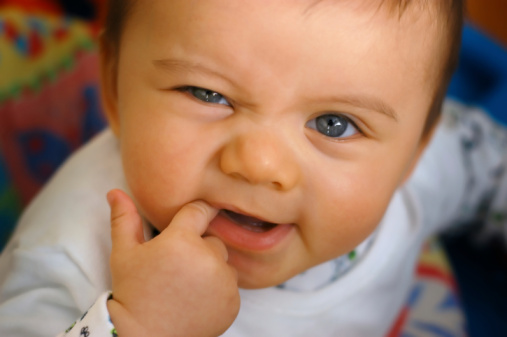As a parent, it can be so frustrating when your child—seemingly out of nowhere—bites someone else. What, you might wonder, prompts biting behavior in kids this age? To help, WebMD.com shares five common reasons, most of which “aren’t intentionally malicious.”
Babies, for example, might bite because they’re teething and want relief from the pain. Infant and toddler bites alike could signal a desire to explore the world through the use of their mouths. Toddlers might also exhibit biting behavior as a way to see how people might react. They may want to hear cries of surprise, not realizing how they are hurting the other person.
see how people might react. They may want to hear cries of surprise, not realizing how they are hurting the other person.
As kids get older, biting can be a way to get attention. And, even if they’re disciplined for that behavior, they’re at least getting negative attention, which is something a child who is feeling ignored might crave. And, biting behavior might also indicate a sense of frustration or a loss of control.
So, What Should You Do?
First, recognize that, if you have a toddler, this is something that kids this age often do. In fact, somewhere between one third and one half of all toddlers in day care are bitten by another child. And, while this is not acceptable behavior, it’s considered normal for children under the age of three, before they have language skills that they can use to share their anger or frustration or the need for control and/or attention they are feeling.
The American Psychological Association shares that adults must quickly address the situation, immediately separating the biter from the child who was bitten. Defusing the situation can help to calm the biter and protect the victim of the bite. If your child was the biter, talk to your child to help him or her understand what prompted the biting behavior, perhaps being mad about a toy being taken away. Rather than labelling the behavior as “bad,” let your child know that this action is “not okay.” It can then help to have your child go somewhere to cool down, the time frame being one minute for every year of his or her age.
Be sure to focus on consoling the child who was bitten, too, because you don’t want the child who bites to “hog the post-bite spotlight.” Sometimes, when a biter realizes how the other person gets the attention, it can “extinguish the biting behavior.”
Also try to determine what triggers the biting so you can try to prevent it going forward. Maybe your child tends to bite when in loud situations that overwhelm him or her, as just one example. And, here’s what NOT to do: Don’t bite the child back to demonstrate that it hurts. Instead, model good behaviors.
ZeroToThree.org recommends other strategies to help prevent biting. They include:
- If your child is in the type of situation that might trigger biting, distract him or her with a toy or book. Go for a walk or look out the window together.
- Teach your child the language skills he or she needs to handle the situation, perhaps: “Please don’t touch my hair” or “I don’t like it when you sit this close.”
- Give your child things to chew, perhaps carrot sticks.
- Teach sharing techniques, perhaps using a kitchen timer to help your child know how long a particular toy is his or hers.
- Read books about biting, including Teeth Are Not for Biting by Elizabeth Verdick.
Biting at Day Care
If your child is biting there, VeryWellFamily.com suggests you make sure your toddler is getting enough sleep at night. You can also volunteer at the day care center so you can try to determine what circumstances lead to biting.



